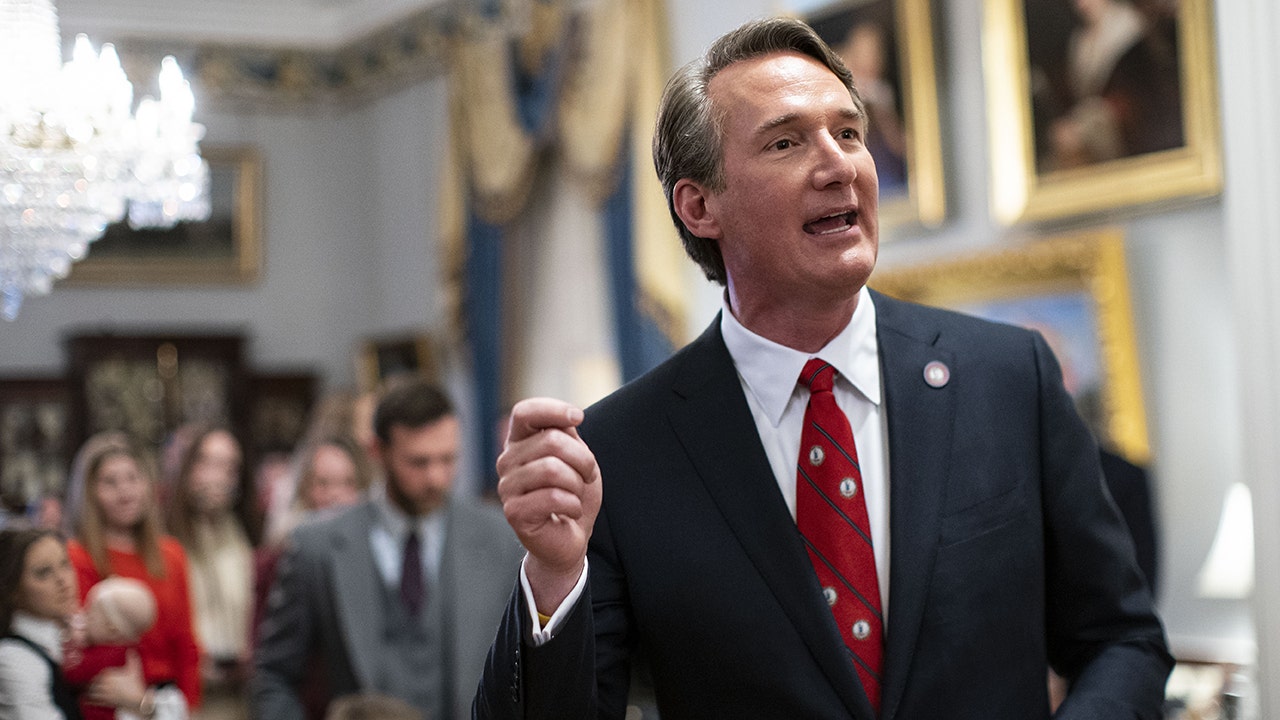Glenn Youngkin’s Religious Beliefs and Practices

Glenn youngkin religion – Glenn Youngkin, the current governor of Virginia, is a practicing Christian. He has stated that his faith is very important to him and that it shapes his personal and political values. Youngkin is a member of the Presbyterian Church (USA) and has served as an elder and deacon in his local church.
Core Tenets of Youngkin’s Religious Faith
Youngkin’s religious beliefs are based on the teachings of Jesus Christ. He believes that Jesus is the Son of God and that through his death and resurrection, we can be saved from sin and reconciled to God. Youngkin also believes in the importance of living a life of love, compassion, and service to others.
Glenn Youngkin’s religious beliefs have been a topic of discussion, with some speculating about his stance on certain issues. However, it is important to note that his personal beliefs should not overshadow the ongoing debate surrounding Delta Airlines’ decision to display the Palestinian flag.
This matter raises broader questions about freedom of expression and the role of corporations in political discourse. As such, it is crucial to engage in respectful dialogue and consider all perspectives on this complex issue, rather than focusing solely on the religious affiliations of individuals involved.
Involvement in Religious Organizations and Activities
Youngkin is actively involved in his local church and in other Christian organizations. He is a member of the board of directors of the Fellowship of Christian Athletes and the National Christian Foundation. Youngkin has also been involved in mission work in Africa and South America.
Role of Religion in Shaping Youngkin’s Values
Youngkin’s religious beliefs have a significant impact on his personal and political values. He believes that government should be based on the principles of justice, compassion, and service. Youngkin also believes that the family is the foundation of society and that it should be protected and strengthened.
Youngkin, a devout Christian, has emphasized the importance of religious freedom and the protection of religious institutions. His stance on Israel, a country he has visited multiple times, is rooted in his faith and his belief in the special relationship between the two nations.
Glenn Youngkin Israel believes that Israel is a beacon of democracy and innovation in the Middle East and that the United States should continue to support its security and prosperity. At the same time, he has expressed concern about the Israeli-Palestinian conflict and has called for a peaceful resolution that respects the rights of both sides.
Impact of Religion on Youngkin’s Policies and Governance: Glenn Youngkin Religion
Glenn Youngkin’s religious beliefs have had a significant impact on his policy decisions and governance. As a devout Christian, Youngkin’s faith informs his views on a range of issues, including education, healthcare, and social welfare.
Education
Youngkin has been a vocal advocate for school choice, arguing that parents should have the right to send their children to the schools that best fit their needs. He has also supported measures to increase religious instruction in public schools.
Healthcare, Glenn youngkin religion
Youngkin is a strong supporter of pro-life policies and has opposed efforts to expand access to abortion. He has also expressed support for measures to reduce the cost of healthcare.
Social Welfare
Youngkin has emphasized the importance of faith-based organizations in providing social services. He has proposed tax breaks for charitable donations and other measures to encourage religious groups to play a more active role in addressing social problems.
Interactions with Constituents
Youngkin’s religious affiliation has affected his interactions with different constituencies. Some voters have been drawn to his faith-based message, while others have been critical of his support for policies that they view as discriminatory or harmful.
Overall, Glenn Youngkin’s religious beliefs have had a significant impact on his policy decisions and governance. His faith has informed his views on a range of issues, including education, healthcare, and social welfare. His religious affiliation has also affected his interactions with different constituencies.
Perception and Impact of Youngkin’s Religion on Public Opinion

Glenn Youngkin’s religious beliefs and practices have garnered significant public attention and scrutiny. His affiliation with the Mormon Church has been a topic of discussion among voters, political commentators, and the media.
Some members of the public view Youngkin’s religious affiliation favorably, seeing it as a sign of his strong moral compass and commitment to family values. Others express concerns about the potential influence of his religious beliefs on his policy decisions, particularly in areas such as reproductive rights and LGBTQ+ rights.
Impact on Voter Support and Political Discourse
Youngkin’s religious affiliation has undoubtedly influenced voter support and political discourse. Among conservative voters, his Mormonism is generally seen as a positive attribute, aligning with their own religious beliefs and values. However, among liberal and progressive voters, his religious affiliation has raised concerns about his stance on social issues.
Youngkin’s religious beliefs have also become a topic of political debate. Opponents have used his Mormonism to question his commitment to the separation of church and state, while supporters have defended his right to practice his religion freely without interference from the government.
Potential Role in Shaping the Narrative Surrounding Youngkin’s Governorship
Youngkin’s religious beliefs and practices have the potential to shape the narrative surrounding his governorship. If he makes policy decisions that align with his religious values, it could reinforce the perception that his faith plays a significant role in his decision-making process.
Conversely, if Youngkin’s policies diverge from his religious beliefs, it could create a disconnect between his personal faith and his public persona. This could lead to criticism from both religious and secular groups, potentially undermining his credibility and authority as governor.